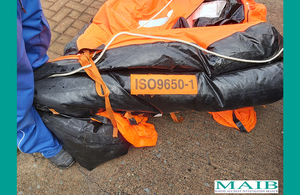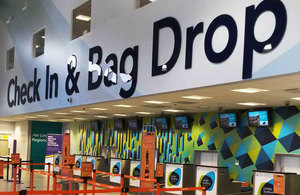The UK Government has today, Friday 5 March, opened a new drive-through coronavirus testing centre at Bankhead Park in Glenrothes (KY7 6GH).
The test centre is part of the largest network of diagnostic testing facilities created in British history. In Scotland, this comprises 8 drive through sites, 33 walk-through sites, 42 mobile units, plus the Glasgow Lighthouse Lab which is working round the clock to process samples.
In Scotland, the UK Government is providing all COVID testing and test processing outside of the NHS. Around two thirds of all daily tests are provided by the UK Government, in support of Scotland’s health services.
Tests must be booked in advance at: NHS Inform or by calling 0800 028 2816. People should only book a test if they have coronavirus symptoms (a high temperature, a new and continuous cough, or a loss or change to their sense of smell or taste).
Health Minister Lord Bethell said:
To respond to the coronavirus, we have built a major testing and tracing system from scratch. We are constantly working to expand and improve it with new technologies and innovations so everyone with symptoms can get a test.
New drive-in sites like this one make it even easier to get a test no matter where you live. If you have symptoms of coronavirus, I urge you to book a test today and follow the advice of NHS Test and Protect if you are contacted to protect others and stop the spread of the virus.
Baroness Dido Harding, Interim Executive Chair of the National Institute for Health Protection, said:
Drive-through sites offer communities better access to coronavirus testing, so everyone with symptoms can get a test. This new site is part of our ongoing work to expand our testing network across the UK which now has the capacity to process more than 700,000 tests a day. We will continue to expand capacity to improve test turnaround times and push forward testing innovations to make sure anyone who needs a test can get one.
Please book a test if you have coronavirus symptoms: a new continuous cough, a high temperature and a loss or change in sense of smell or taste, and follow the advice of NHS Test and Protect if you are contacted.
UK Government Minister for Scotland, Iain Stewart said:
The UK Government is doing everything it can to support people in all parts of the UK through the pandemic.
Testing continues to play an important role in how we manage the virus alongside the roll out of vaccines, helping to identify local outbreaks, slow down the rate of transmission and protect communities. I would like to thank the public for continuing to do the right thing and come forward to be tested when they display symptoms.
The UK Government continues to provide the bulk of testing in Scotland, with this new drive-through centre in Glenrothes just the latest in our extensive network. We have also secured and paid for millions of doses of the Pfizer and Oxford vaccines for all parts of the UK.
Hope is on the horizon, but we can’t let up on our efforts to contain the virus.
NHS Fife Director of Public Health, Dona Milne, said:
While the COVID-19 vaccination programme in Fife is moving at considerable pace, testing still remains a crucial part of the effort to suppress the virus locally and prevent its transmission. The new site in Glenrothes in another welcome addition to the expanding network of testing sites here in Fife, improving access for those in the town and the surrounding villages.
Simon Venn, Mitie Chief Government & Strategy Officer, said:
Our priority during the pandemic is to support the nation’s efforts to fight COVID-19 and help keep the country running. Testing is a critical part of the UK’s strategy to combat coronavirus and we’re proud to support the UK Government with this vital task. A big thank you to all the NHS staff, Mitie employees and other frontline heroes in Glenrothes, who are working tirelessly to keep us all safe.



